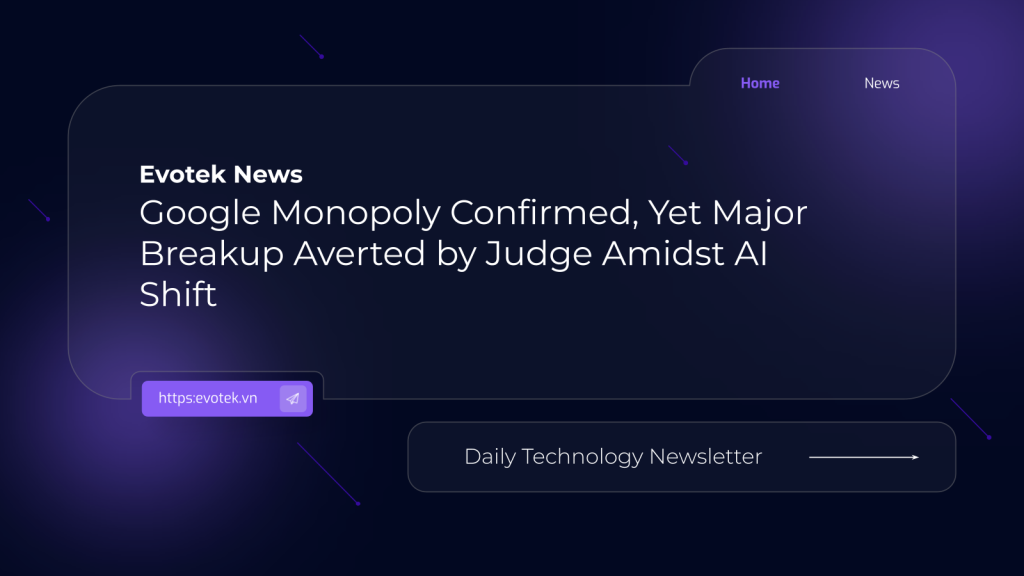Despite a prior ruling labeling Google an “overbearing illegal monopoly,” a recent decision by US District Judge Amit Mehta offers surprisingly limited remedies, leaving the tech giant’s core structure largely intact. This outcome is expected to bring relief to Google’s Mountain View headquarters, signaling that the most drastic potential actions to dismantle its dominance have been sidestepped.
Limited Repercussions for Google’s Core Assets
In his extensive 230-page judgment, Judge Mehta confirmed that Google would not be compelled to divest its popular Chrome browser or the ubiquitous Android operating system. Crucially, the ruling also permits Google to continue its multi-billion-dollar payments to partners, including Apple, to maintain its prominent position as the default search engine across various platforms.
Judge Mehta explicitly stated, “Google will not be required to divest Chrome; nor will the court include a contingent divestiture of the Android operating system in the final judgment.” He added that plaintiffs “overreached in seeking forced divestiture of these key assets, which Google did not use to effect any illegal restraints.” This decision marks a significant setback for the US Department of Justice (DoJ), which had advocated for more stringent divestiture measures.
Modest Concessions: Data Sharing and Oversight
While larger structural changes were rejected, the court did impose a few remedies. Google must now share access to user-side data, such as its search index and user-interaction data, with “qualified competitors.” However, it is not required to disclose specific advertising data, which some rivals had sought to gain insights into Google’s proprietary “recipes” for search relevance.
Adam Kovacevich, CEO of the technology non-profit Chamber of Progress and a former Google employee, highlighted this distinction: “What you had is Google’s rivals arguing that Google had to share its recipes’ secret sauce. And the judge rejected that. He said: ‘You only have to share their ingredient list, effectively their search and search index.'”
Furthermore, the ruling mandates that Google cease entering into exclusive agreements that establish it as the default search engine on mobile devices. The company will also undergo six years of regulatory oversight by a technical committee, tasked with monitoring compliance and preventing any backsliding on competition.
Antitrust Advocates Express Outrage
The decision has ignited a firestorm of criticism from antitrust groups, who view the remedies as insufficient given the gravity of the initial monopoly finding. Nidhi Hegde, executive director of the American Economic Liberties Project, sharply condemned the ruling, stating, “You don’t find someone guilty of robbing a bank and then sentence him to writing a thank you note for the loot.” She argued that the “feckless remedy… is a complete failure of his duty and must be appealed.”
The DoJ is widely expected to appeal the ruling, though it has not yet commented publicly.
Generative AI: A Game-Changer in the Court’s View
A pivotal factor in Judge Mehta’s tempered approach appears to be the rapid evolution of Generative AI. The judge explained that the competitive landscape faced by Google has dramatically transformed since the DoJ filed its case in October 2020.
Mehta wrote, “The emergence of GenAI changed the course of this case… The very first witness at the remedies hearing, by contrast, placed GenAI front and center as a nascent competitive threat.” He acknowledged that recent proceedings focused as much on fostering competition within Generative AI as on curbing Google’s existing search dominance. This perspective suggests that the court believes new AI technologies introduce a fresh layer of competition that wasn’t present when the initial case was built.
Google has embraced this rationale, welcoming the decision and reiterating its stance that intense competition, particularly with the advent of AI, offers consumers ample choice. Kovacevich supported this view, noting that “anybody who has been paying attention to technology in the last two years would say that generative AI does pose a competitive challenge to traditional search engines.”
Financial Implications and Beneficiary Partners
The ruling immediately impacted financial markets, with Google’s stock climbing eight percent in after-hours trading, and Apple’s shares also rising 2.5 percent. This investor confidence likely stems from the continued viability of Google’s substantial payments to partners for default search placements.
During the trial, it was revealed that Google paid over $26 billion to other companies in 2021 to secure default search status. Apple alone reaped an estimated $18-20 billion in 2020. Mozilla, while receiving a comparatively smaller sum of around $400 million, relies heavily on these payments, with its CFO warning that a cessation could “put Firefox out of business.” Judge Mehta acknowledged these “crippling” potential downstream harms to distribution partners, which influenced his decision against a broader ban on such payments.
Minimal Change for Consumers, Prolonged Legal Battle Ahead
Ultimately, the immediate impact on consumers is expected to be minimal. Mitch Stoltz, IP litigation director for the EFF, commented, “Users will be in much the same position as before.” He emphasized that the lack of structural changes to Google or a ban on its massive revenue-sharing payments means that “Google’s incentives won’t change, and the data-sharing remedies may be undermined.”
The legal saga, which has already spanned years, is likely far from over, with appeals and continued scrutiny ensuring Google’s monopolistic practices remain a central topic in tech regulation.

 日本語
日本語 한국어
한국어 Tiếng Việt
Tiếng Việt 简体中文
简体中文